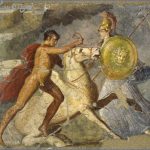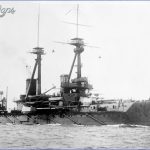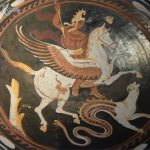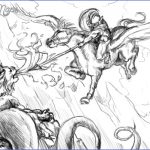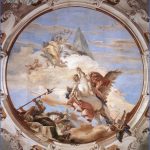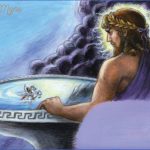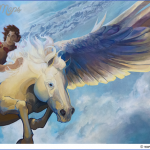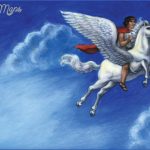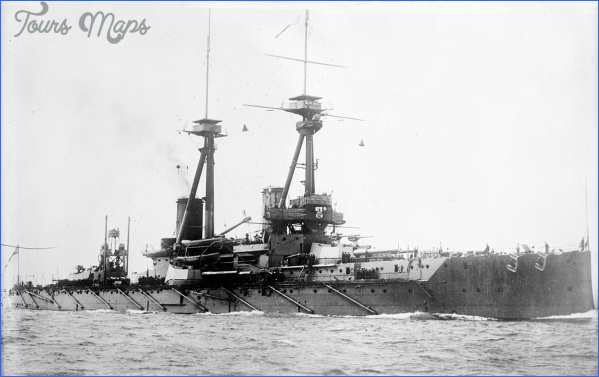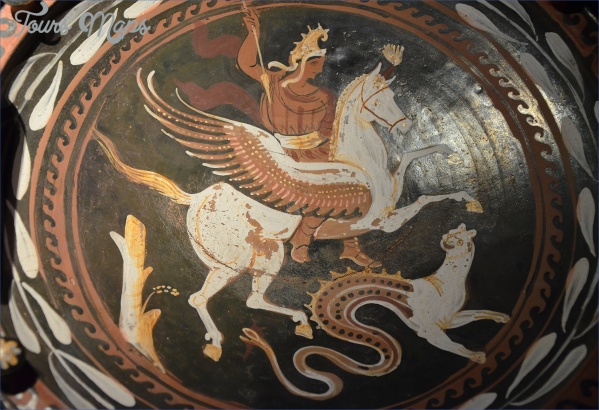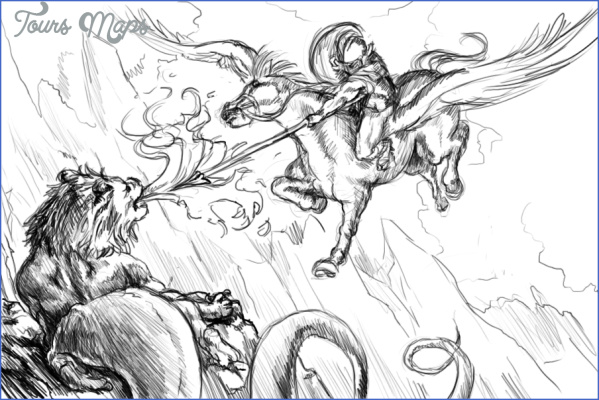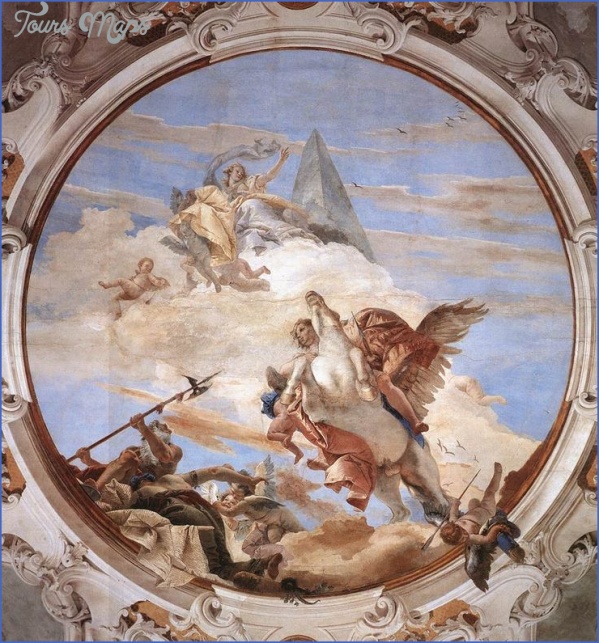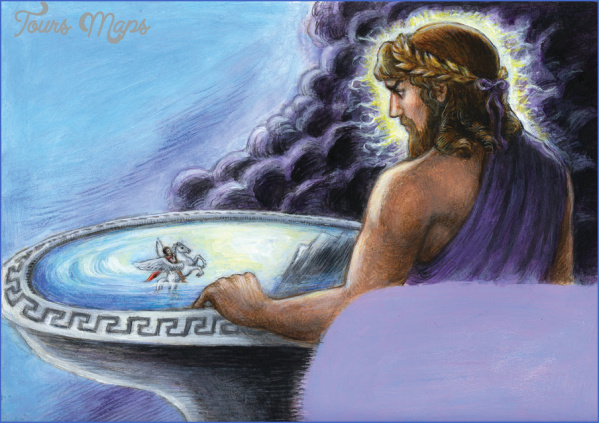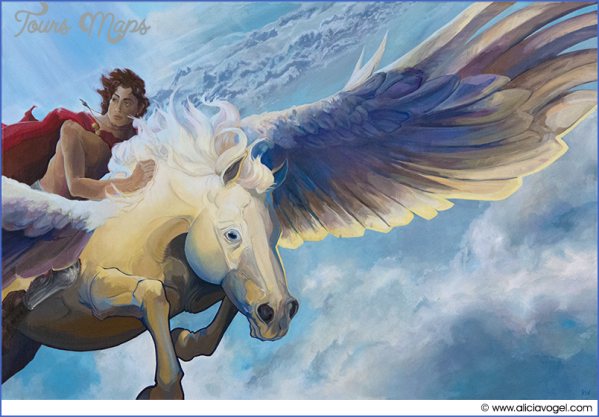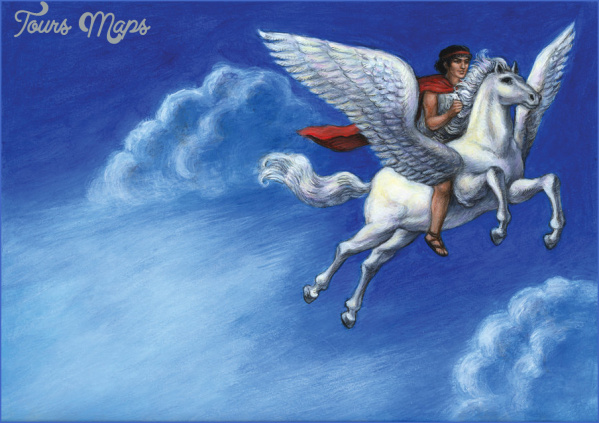Sisyphus left several sons, both legitimate and bastard. Among the latter, some said, was Odysseus; among the former, Glaucus, father of Bellerophon. The many contradictory versions of Bellerophon’s story are impossible to reconcile. In most (though not in Homer) he is master of the winged horse Pegasus, which was born from the blood of Medusa. Challenged to bridle this fabulous creature as it grazed on Acrocorinth by Peirene’s spring, Bellerophon succeeded only with the help of Athene and Poseidon. (Pindar’s account begins this chapter.) It was as well that he did, for he would soon owe Pegasus his life.
Having accidentally killed a man, Bellerophon was exiled to Tiryns, where the young queen Anteia (sometimes called Sthenoboea) fell in love with him When Bellerophon rejected her advances, Anteia took revenge. In Homer’s account:
She spoke lying words to the king: ‘Kill Bellerophon or die. He tried to sleep with me against my will.’ When he heard these words, the king was seized with anger. But, a pious man, he shrank from killing him Rather he sent Bellerophon to Lycia with destructive symbols written in a folding tablet, sufficient to unknit his life, and bade him show them to Anteia’s father, that he might be destroyed.
Bellerophon & Pegasus Photo Gallery
Blissfully ignorant of the letter’s contents, Bellerophon and Pegasus went east. In Lycia King Iobates tried to fulfil Anteia’s request by sending him on a deadly mission to kill Chimaera, a fire-breathing beast with three heads. One was a lion’s; the second, sprouting from its back, a goat’s; and the third, at its tail, a serpent’s. Soaring into the air astride Pegasus, too high for Chimaera’s fire to harm him, Bellerophon rained down arrows. In one account, he even thrust into its lion jaws a long spear tipped with lead, which, melting in the heat, ran down Chimaera’s throat and suffocated him Then Bellerophon returned to Iobates.
The king was baffled. Why had the gods protected such a wrongdoer? His perplexity increased when, sent against fierce tribes (including the Amazons), Bellerophon constantly came back victorious. At last Iobates confronted him with Anteia’s letter. Bellerophon refuted the charge and Iobates gave him his younger daughter’s hand in marriage.
Mounted on (the here wingless) Pegasus, Bellerophon attacks Chimaera on a terracotta relief from Melos (c. 460 bc).
All did not end so rosily. Bellerophon’s success went to his head and he determined to fly Pegasus to Mount Olympus, a transgression the gods could not permit. At once Zeus sent a gadfly to bite Pegasus’ flanks. The horse reared up. Bellerophon fell hard to earth where, in the words of Homer: ‘Hated by the gods, he wandered the plain of Aleios alone, gnawing at his spirit, shunning the paths of men.’ As for Pegasus, after many journeys, when he invariably created springs by striking the ground with his hooves (pegai means ‘springs’), he did reach Olympus, where he carried Zeus’ thunderbolts and became a constellation.
Maybe You Like Them Too
- Theseus & Peirithous
- The Voyage of the Argo Begins
- Minos, his Loves & his Family
- The Centaurs
- Athens in History & Today

